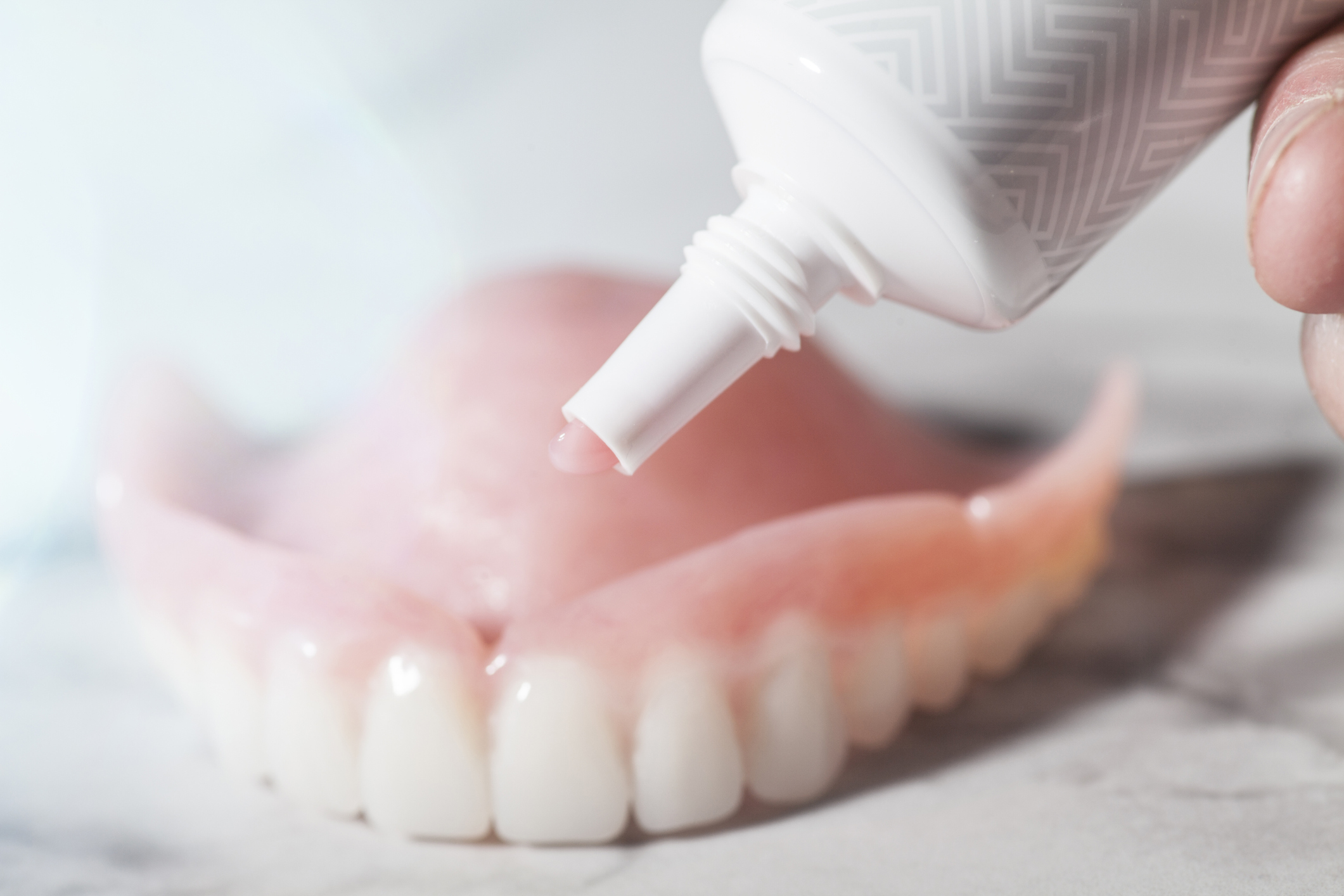Get Easy Health Digest™ in your inbox and don’t miss a thing when you subscribe today. Plus, get the free bonus report, Mother Nature’s Tips, Tricks and Remedies for Cholesterol, Blood Pressure & Blood Sugar as my way of saying welcome to the community!
Pneumonia: The surprising threat to denture wearers

Pneumonia tends to affect older adults more than younger ones, and it’s deadlier when it does. Older people are nearly five times more likely to be hospitalized with pneumonia, and 85 percent of all pneumonia-related deaths are in people over the age of 60.
With these odds, older adults need to protect themselves as best they can from any bacteria or illness that can lead to pneumonia, taking extra precautions, especially during cold and flu season.
But there’s a year-round threat quietly sitting on nightstands and sink counters in approximately 36 million homes across the country that few of us know about…
Getting pneumonia from your false teeth
In a study, researchers at Cardiff University in the U.K. took mouth, tongue and denture swabs from a group of denture-wearing patients hospitalized with pneumonia. The researchers compared these swabs to samples taken from patients in care homes who wore dentures and did not have pneumonia.
Then, the team analyzed the samples to identify the types and abundance of microbes present, including any microbes that could cause pneumonia.
“We were expecting to see a difference but were surprised to see 20 times the number of potentially pneumonia-causing bacteria on dentures in people with pneumonia, compared to people without,” says Dr. Josh Twigg, lead author of the study.
According to Twigg and his team, if dentures are not cleaned properly, they could provide a new surface where disease-causing microbes can colonize. Then, when people wear those dentures, they may be inhaling saliva containing these microbes into their lungs, where infection can take hold.
What happens with dentures is that they eventually become coated with thin layers of sticky bacteria known as biofilms. Experts say these bacteria form self-sustaining microbial communities bound together by a kind of matrix that adheres tightly to surfaces, making them much more difficult to remove than separate bacteria. Because dentures are made of porous materials, they act as a sort of reservoir for the biofilms and allow the bacteria within them to thrive.
This isn’t the first time pneumonia-causing bacteria have been found on dentures. In an earlier study, bacteria that causes pneumonia, including the dangerous MRSA strain, were discovered on more than 60 percent of the dentures examined.
Don’t let your dentures become a bacterial reservoir
Dr. Twigg says the study shows the importance of cleaning dentures thoroughly. Simply rinsing them off in the sink or shower isn’t enough.
If you wear full or partial dentures, dental experts recommend you take the following steps to ensure they remain as clean as possible:
- Each time you eat, rinse your dentures and your mouth out afterward.
- Brush your dentures every evening using a toothbrush and toothpaste specifically designed to clean the special materials your dentures are made from. Some experts even recommend using soap and water instead of denture toothpaste for extra cleaning power.
- Brush your mouth in the morning before putting your dentures in and in the evening after taking them out. Use a regular toothbrush, not the one you use to clean your dentures.
- Soak your dentures overnight in a denture-soaking solution rather than plain water.
- Rinse your dentures before you put them in your mouth in the morning.
Researchers in Brazil found that microwaving dentures for 3 minutes helps kill off bacteria, including the MRSA strain. You should absolutely check with your dentist before trying this to see if microwaving will cause damage to your dentures. And of course, if your dentures contain any metal parts, you can’t put them in the microwave.
The Brazilian researchers also were able to destroy bacteria by soaking dentures in a solution of 2 percent chlorhexidine gluconate, a germicidal mouthwash, for 10 minutes. However, this chemical may be too harsh for daily use.
When cleaning your dentures, you may want to stand over a bowl of water or a folded towel so that they don’t break if you drop them. If you do drop your dentures, make sure you re-sanitize them.
Finally, never sleep in your dentures, as this can make it more likely for bacteria to migrate from your dentures into your body. One study found that people in their late 80s who slept in their dentures had double the risk of pneumonia.
Editor’s note: Did you know that when you take your body from acid to alkaline you can boost your energy, lose weight, soothe digestion, avoid illness and achieve wellness? Click here to discover The Alkaline Secret to Ultimate Vitality and revive your life today!
Sources:
Could your false teeth give you pneumonia? — EurekAlert!
Compositional shifts within the denture-associated bacteriome in pneumonia – an analytical cross-sectional study — Journal of Medical Microbiology
Dirty dentures? Dangerous MRSA may be lurking, dentists say — NBC News
Could Your Dentures Be Making You Sick? — Really Smile
Are your dentures making you sick? — The Waterford Dentist
Denture cleaning — Oral Health Foundation
Pneumonia Prevention — National Heart, Lung, and Blood Institute














